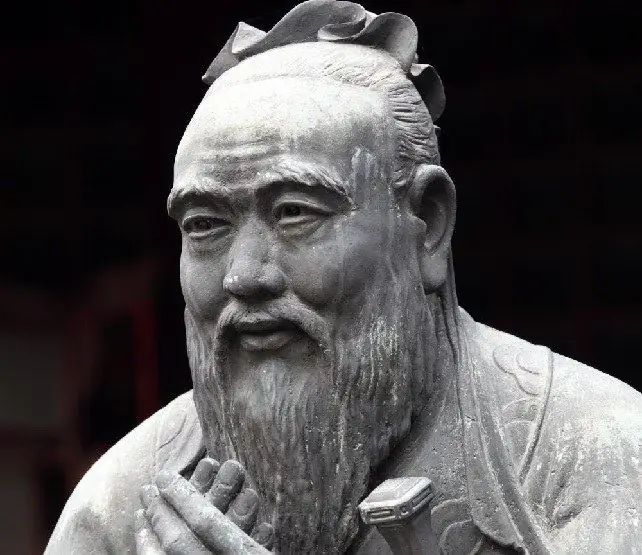- Author Antonio Harrison [email protected].
- Public 2023-12-16 07:44.
- Last modified 2025-01-22 21:44.
Confucianism is recognized as the national religion of China, although this is most likely an ethical and political doctrine, since there is no such thing as a single god in this religion. Confucianism puts a person at the center of the Universe, therefore, any phenomenon in it is considered, first of all, from the standpoint of morality.

The authorship of the spiritual teaching on the improvement of man belongs to the ancient Chinese sage Kun-tzu, or, in Latin transcription, Confucius, who lived in 551 - 479. BC e. This period in the history of ancient China is characterized by major social and political upheavals and crises: the destruction of the patriarchal clan norms, institutions of power and the state that existed before. As it happens in an era of great upheavals, a person was found who was able to formulate and convey to society the moral, ethical and spiritual norms, which were widespread and helped the people of China to maintain moral integrity.
In his teaching, Confucius relies on primitive beliefs, including the cult of deceased ancestors, on the higher divine forces - heaven and nature, as an example and source of harmony and the principles of the "golden mean". This teaching is a ready-made program for the spiritual development of a person who is the center of the Universe and therefore must live in harmony with the surrounding Cosmos. Each person, a follower of this doctrine, lives according to the laws of nature, he is a model of morality and an ideal for imitation of the whole society. A sense of harmony is organically inherent in such a person, he has an innate or acquired through self-improvement organic gift to exist in a natural natural rhythm.
There are no written works of Confucius, but in the treatise "Lun-yu", where his conversations with students and followers are recorded, the teacher designates five "constancies" that should be adhered to both in government and in family, everyday life. These include: ritual, humanity, duty as justice, knowledge and trust. The special role of the ritual is explained by the fact that with its help it is possible to adapt and fit every person, society, state into the endless hierarchy of a living space community, which has the peculiarity of constantly changing, while maintaining the laws and principles of development unchanged.
Fundamental "constancy" brought up a sense of proportion in any person - from a ruler to an ordinary peasant, ensuring the preservation of unshakable moral values in society that do not allow the development of such destructive qualities as satiety and consumerism in a person. The viability of the Confucius teachings, whose followers are still numerous in China today, is confirmed by the existing resistance of the Chinese society and state to the vices that characterize the European consumer society.






